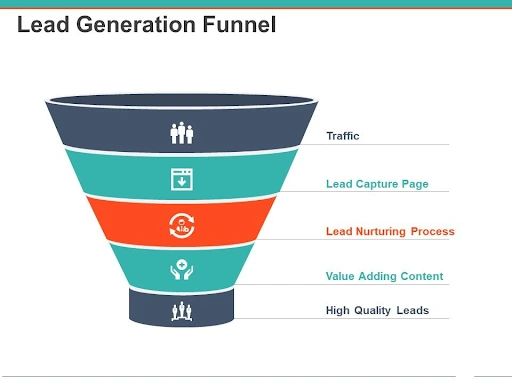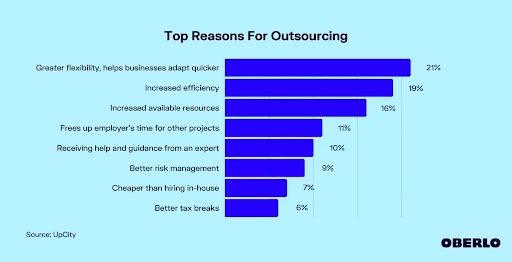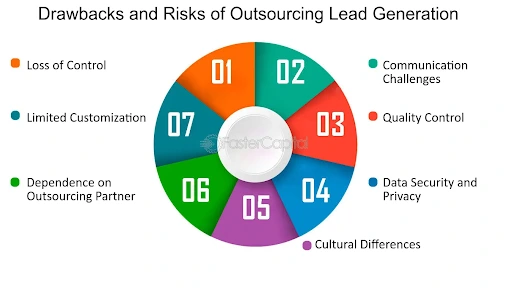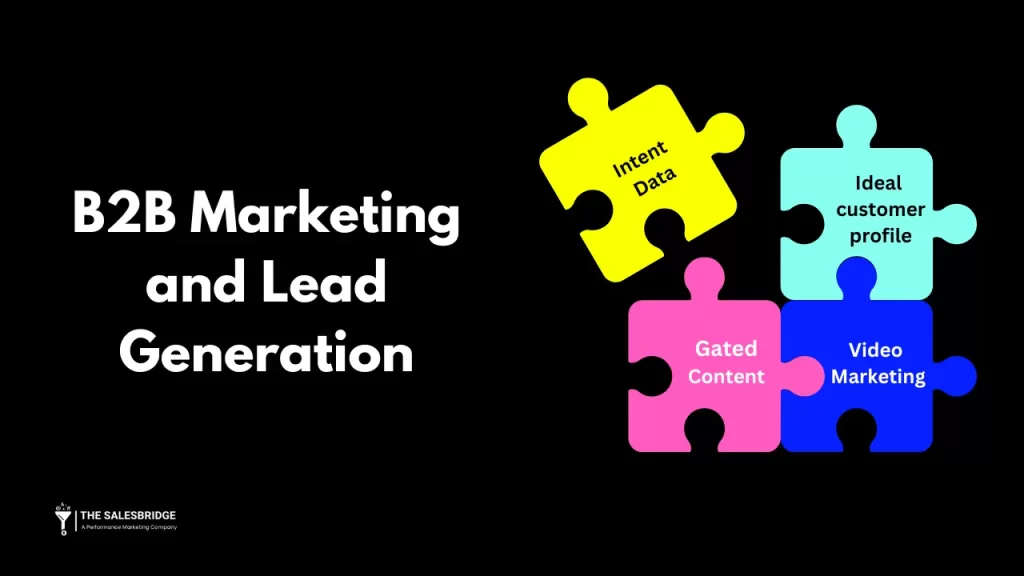It is no surprise that the process of Lead Generation can be very long and gruelling. Hiring the right and experienced team while still focusing on other priorities may end up costing the business instead of a profit. In such a scenario, the ideal option would be to outsource your requirements to an external dedicated team that will bring you timely and successful results. As a result, Lead generation Outsourcing comes into play.
Here is what this blog will entail:
- What is Lead Generation?
- Understanding Lead generation Outsourcing
- Benefits of Lead Generation Outsourcing
- Challenges and Limitations
- How to Choose the Right Outsourcing Partner
- How to Implement a Strong Outsourcing Strategy
- Final thoughts
What is Lead Generation?
With the ultimate objective of turning a prospect into a client, Lead Generation is the process of drawing potential customers to your business and cultivating their interest through nurturing.
Some common ways of generating leads are through intent data, blogs, online material, email marketing, etc.
Any individual who expresses interest in a company’s goods or services is considered as a lead.

Generating leads is essential to accelerating the growth of any organisation. By concentrating on generating leads of the highest quality, you provide sales teams access to a database of customers that fit your target clientele. Consequently, there is an increase in conversion revenue.
Understanding Lead Generation Outsourcing
Definition:
Outsourcing lead generation entails collaborating with other organisations or agencies to manage multiple elements of the lead generation procedure.
These independent organisations, who are frequently experts in the industry, use their knowledge, resources, and technology to find and evaluate possible leads for companies.
Scope:
Lead generation outsourcing includes a broad range of operations such as:
1. Building the Database
This involves creating a comprehensive database of potential leads and prospects depending on specific criteria
2. Prospecting
This involves identifying and assessing potential clients who fit the buyer persona.
3. Content Syndication
This includes distributing various content materials across multiple channels and engaging potential clients.
4. Appointment Setting
Appointment Setting involves scheduling meetings with potential leads.
5. Follow-ups
This involves nurturing leads through various touchpoints and moving them towards the sales funnel.
Benefits of Lead Generation Outsourcing
A vital component of every business is lead generation, which draws in new clients and creates interest in your goods and services. However, it may be a difficult procedure that takes a long time and requires certain knowledge and tools. This is when lead generation outsourcing is useful. You may use the experience of experts who possess the expertise, abilities, and resources to produce high-quality leads for your company.

Here are the benefits of outsourcing Lead Generation:
1. Focus of Core Competencies
By outsourcing Lead Generation, companies can focus on their primary expertise. Companies may focus their attention on what they do best rather than allocating important internal resources to a tedious and complex process.
2. Cost Efficiency
It might get expensive to operate an internal lead generation service. Outsourcing offers a more affordable option. Businesses only pay for the services they use, saving money on the overhead of staffing and sustaining an internal workforce.
3. Access to Industry Experts
Lead generation professionals are highly knowledgeable and experienced. Businesses can get a competitive edge from outsourcing partners’ in-depth knowledge of consumer behaviour, industry trends, and efficient lead generation methodologies.
4. Scalability
Businesses can easily scale their Lead Generation processes by outsourcing them. Outsourcing gives them the flexibility to adjust according to swiftly changing business demands.
5. Enhanced Speed and Efficiency
Lead Generation firms possess enhanced tools and resources that enable them to expedite the process. This results in faster outcomes in addition to agility and efficiency.
Challenges and Limitations
Though the benefits are exemplary, outsourcing Lead Generation does come with its own set of challenges and limitations. Understanding them will help in mitigating any risks that may follow.

Some of the challenges are listed below:
1. Privacy Concerns and Data Privacy
When you outsource, you provide external partners access to confidential business information. Protecting a company’s interests requires strict privacy regulations and strong data security procedures.
2. Quality Control
Preserving the quality of the leads that are produced is a frequent concern. It is vital to establish transparent communication channels, provide detailed rules, and conduct regular performance assessments to guarantee that outsourced staff conform to the organization’s norms.
3. Communication Challenges
The secret to a successful lead generation outsourcing project is effective communication. Disparities in languages, time zones, and communication styles might be challenging. To address these gaps, strong communication protocols must be established.
How to Choose the Right Outsourcing Partner
The choice of an outsourcing partner is a crucial one that has an immediate effect on how well lead generation initiatives operate. The following are important things to consider:
1. Industry Knowledge and Expertise
Select a partner who has a strong track record in Lead Generation and a comprehensive grasp of the related sector. This guarantees that the team that is being outsourced can proficiently handle the nuances of the company environment.
2. Tech Infrastructure
Examine the outsourcing partner’s technological expertise. Strong technology structure guarantees system compatibility and improves lead generation procedures’ efficiency.
3. Scalability
Select a partner who can adapt operations to the changing demands of the company. Ease of adjustment to changes guarantees a smooth working relationship.
4. Data Protection and Security
Lend partners priority when it comes to strict data security protocols. It is inevitable to promise adherence to industry rules and data protection.
How to Implement a Strong Outsourcing Strategy
According to S2WMedia, outsourced Lead Generation performs about 43% better as compared to generating leads in-house.
Now that you know the benefits and limitations of outsourcing Lead Gen, you can develop a robust strategy that guarantees success.
Here is how to do it:
1. Good Communication
Ensure to set up clear and transparent means of communication. Communicate your expectations, requirements, KPI’s with clarity so that the outsourcing team aligns with your objectives.
2. Collaboration with the Internal Team
Ensure that your in-house team and outsourcing partners collaborate effectively. A successful Lead Generation strategy heavily relies on seamless collaboration.
3. Regular Monitoring and Assessment
Monitor the performance of the outsourcing team regularly. Conduct periodic assessments, take continuous feedback and make adjustments accordingly to optimize the process.
Final Thoughts
Lead Generation Outsourcing is an educated choice that can revolutionize how companies approach growth. It is not just a way to save money.
Companies may come across newer opportunities, accelerate their sales process, and gain a competitive advantage. Companies that adopt this model of change and adopt outsourcing stand to benefit from increased efficiency, expansion, and sustainable revenue growth as the trend continues to gain traction.
Akash Pandey is an SEO Executive and B2B Content Writer specializing in crafting search-optimized strategies that drive growth. With a knack for blending data-driven insights and engaging content, he enhances online visibility while delivering impactful messaging that resonates with B2B audiences.



